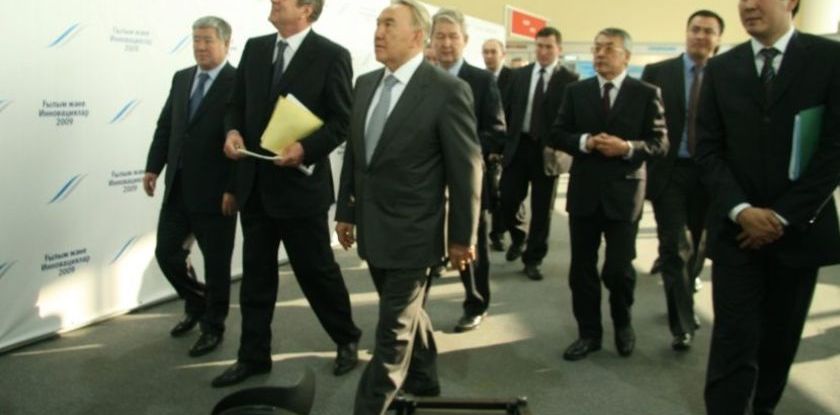The reign of President Nazarbayev is ending. Everyone in Kazakhstan realizes it now. To see that, one only needs to look at the last year discussion in the Kazakh press and the Internet. The discussion was about a possible Nazarbayev’s successor(s) and how the state regime could (should) change after the so called “leader of the nation” parts from this life. What is more, on the background of Islam Karimov’s death and all the related internal political events in the neighboring Uzbekistan, this discussion took an especially topical turn.
So, we are suggesting to continue discussing this subject directing your attention not so much to the ruling elite and its clans’ intentions as to the intrinsic factors that will, one way or the other, dictate to Nazarbayev’s successor(s) what to do.
Why do we suggest this approach? We do so because Nazarbayev does not have and cannot have a plan to transfer the power to anyone. This simply contradicts his nature; the nature that does not want to acknowledge its mortality.
What is there, then? There is a desire to ensure the safety and material prosperity of his nearest and dearest, to remain in the history of the country as someone who wants to live in the memory of future generations, to guarantee the consistency of state policy for those who rule after him. However, he does not have a plan, an approved and valid plan with concrete measures, deadlines, and names of persons responsible for its execution.
What does this mean? It means that the plan to shift the supreme power in Kazakhstan can only exist viva voce, that is on the level of conversations and verbal agreements. And this means the plan can change on a day-to-day basis.
Moreover, we assume there can be several such plans and each elite group promotes a version most advantageous to it. In accordance with the Asian practices, the “tsar” often agrees with them. He does so to, first, not to quarrel with allies and, second, to get their support. In such a case, those making suggestions pretend the “tsar” will live forever. Their suggestions only aim to solidify his power and the “tsar” pretends to believe them.
Therefore, we can only judge Nursultan Nazarbayev’s intentions by his actions including the manpower deployment on the highest level of state power. Note that we can only presume it. We cannot say anything with certainty. And even presuming is not always possible. Despite the popular opinion, Nazarbayev is not omnipotent and must consider the political weight and interests of his allies and the clans behind them. However, not even the “leader of the nation” knows what will happen after his death and how things will turn out. This we can say for certain.
So, with all this in mind, let us try and outline a shape of the “successor operation”.
First, there is 99,999% chance that Nursultan Nazarbayev will cling to power till the last breath. His “voluntary” resignation is possible only in the case if he de-facto transforms into a living corpse. Then, other people will make decisions for him. These people will interpret the president’s lip and eye movements as they see fit.
Second, there certainly be not one but several successors. We do not mean to say the country will have several presidents. We are saying that supreme power in Kazakhstan will be divided. It does not matter how it will happen. It may be a change in the Constitution or an informal private agreement. What matters is there can be no other way. Under the conditions of the authoritarian political regime, there is only one “leader of the nation” in the country. For another to appear, some time needs to pass and, while it is passing, the power will be divided among several influential figures.
Third, after a time, one of these successors will gain political weight and assume a position of the second “leader of the nation”. Unfortunately, this is the logic of internal political developments in the great spaces of Eurasia. However, the question whether the second “leader of the nation” will continue following Nazarbayev’s domestic and foreign policy remains open. It will depend not so much on the successor as on the intrinsic factors including the oil prices and the social, economic, and political processes in the country.
The rest is much harder to predict. There are so many uncertainties – in the world, in Eurasia and in Kazakhstan. Anything is possible – from Nazarbayev’s “dethronement” to the total collapse of the country. Regarding the first scenario, Nazarbayev may become a scapegoat for all the Kazakhstan’s downfalls. There can be also a simple wish to take away the multibillion dollar assets from his friends and relatives. In the case of the second scenario, Kazakhstan may break down into several “banana republics”. So far, only one thing is certain. The preservation of the existing state policy will lead to the collapse of the political system.
EDITORIAL NOTE. This publication begins a series of articles devoted to the current economic and political situation in Kazakhstan. In these articles, we will make our predictions regarding the country’s development and examine possible scenarios.




